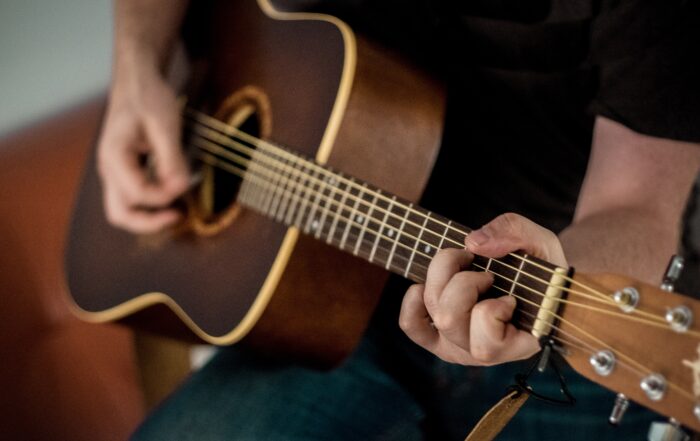England’s First Hymnist

I wonder… do you know the first hymn that was ever written?
Hi, I’m Joni Eareckson Tada and, as you know, I love the classic hymns of the faith. Hymns like “All Creatures of Our God and King,” or “A Mighty Fortress Is Our God,” or the perennial favorite, “Amazing Grace.” But actually, none of these timeless hymns were the first ever written. You’re not going to believe this, but I just bet you do know the very first hymn that was penned because it is something I am certain that you have sung many, many times… in fact, you can sing it with me now. It goes…
Praise God from whom all blessings flow,
Praise him, all creatures here below;
Praise him above, ye heav’nly host;
Praise Father, Son, and Holy Ghost.
Amen.*
Now, you know that as “The Doxology,” and it’s a classic that is often sung at the end of worship services or when they present the offering. For many of us, hymns like these have been around for what seems like forever. But have you ever wondered what life would be like if there were no hymns? That’s precisely what life was like in England in the early 1600s. There were no hymnals, because there were no English hymns. In fact, only the book of Psalms was sung during public worship, but all that changed thanks to Thomas Ken.
Although we do not know a great deal about Thomas’ early years, we do know that his start in life was rough. Both his parents died while he was still a young boy, so Thomas was taken in by his half-sister and her husband. They sent him to the oldest and perhaps most historic public school in England – Winchester. When he grew up, Thomas chose to pursue a call to the ministry and eventually he made his way back to Winchester College as chaplain. It was there, in 1674, that Thomas wrote the first 3 English hymns ever composed.
Now, to us today, this sounds like a rather tame undertaking. But in 17th century Britain, this was an extremely bold move. The Church of England refused to allow anything besides Scripture to be sung in worship. Thomas, however, wanted to find a new way to encourage spiritual growth in his young pupils and to teach them the spiritual discipline of praising the Lord at all times. So, he boldly published the lyrics in a prayer manual and instructed the boys to use them in their private worship: one hymn for when they arose, another hymn to be sung at bedtime, and a last hymn to be sung at midnight if they couldn’t sleep. Each hymn ending with the same final verse: “Praise God from whom all blessings flow, Praise Him all creatures here below. Praise Him above ye heavenly hosts. Praise Father, Son, and Holy Ghost. Amen.” Today, this glorious hymn is known throughout the English-speaking world as The Doxology. It was one of the first steps in revolutionizing music in worship, but it all started with a chaplain’s simple vision to teach young people under his care about the God who is the source of all things good. An in case you were wondering what happened to Thomas Ken, he eventually became known as “England’s first hymnist” and in 1680 he was appointed chaplain to King Charles II. When he finally passed into glory, he was buried at sunrise as the morning version of The Doxology was being sung — it was a fitting benediction on a life well lived. Praise God from whom all blessings flow, Praise Him all creatures here below. Praise Him above ye heavenly hosts. Praise Father, Son, and Holy Ghost. (sing it with me) Amen.
*Music: “The Doxology” by Thomas Ken; Public Domain.
© Joni and Friends





